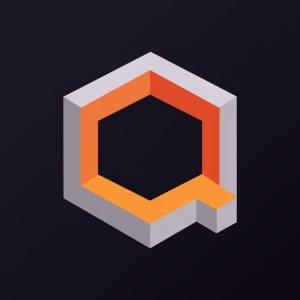Welcome to our dedicated page for Ionq news (Ticker: IONQ), a resource for investors and traders seeking the latest updates and insights on Ionq stock.
IonQ, Inc. (NYSE: IONQ) is a quantum platform company focused on quantum computing, networking, sensing, and security, and its news flow reflects this broad scope. Company announcements frequently highlight advances in quantum hardware such as IonQ Forte, IonQ Forte Enterprise, and the forthcoming IonQ Tempo systems, including reported performance milestones like 99.99% two-qubit gate fidelity. Readers can expect coverage of product roadmap updates, performance records, and deployments of new generations of quantum systems.
IonQ news also emphasizes strategic partnerships and investments. Recent releases describe agreements with QuantumBasel in Switzerland for on-site enterprise systems and an Innovation Center in Europe, a finalized deal with KISTI in South Korea to deliver a 100-qubit IonQ Tempo system for a national quantum computing center, and collaborations with AstraZeneca, Einride, Heven AeroTech, and CCRM. These stories illustrate how IonQ positions its technology for applications in logistics, regenerative medicine, national security, and quantum communication infrastructure.
Corporate and governance updates are another recurring theme. IonQ’s disclosures include executive appointments and transitions, such as the creation of IonQ Italia and its leadership, board changes, and new senior roles in information and cybersecurity. Financial and capital markets items, including warrant offerings, resale prospectus supplements, and acquisition-related share issuances, appear in periodic Form 8-K filings and associated press releases.
By following IonQ news, investors and observers can track developments in quantum computing performance, international expansion, national and regional quantum initiatives, and the company’s evolving ecosystem of commercial, academic, and government partners. This page aggregates those updates so readers can monitor how IonQ’s quantum technologies are being applied across sectors and geographies.
IonQ (NYSE: IONQ), a leader in quantum computing and networking, has announced its upcoming 2025 Analyst Day scheduled for September 12, 2025, at the New York Stock Exchange. The event will run from 9:30 AM to 12:30 PM ET.
The company's executive leadership team will present comprehensive updates on IonQ's business strategy, recent achievements, and product roadmap. Investors and analysts will receive detailed insights into the company's technological, operational, and financial progress. A live webcast of the event will be accessible through IonQ's Investor Relations website.
IonQ (NYSE: IONQ) has achieved a breakthrough in synthetic diamond production for quantum computing in collaboration with Element Six, a De Beers Group company. The company has developed high-quality, quantum-grade diamond films that are compatible with standard semiconductor manufacturing processes.
This innovation enables mass production of quantum systems by allowing diamond-based devices to be manufactured using conventional chipmaking techniques. The breakthrough is particularly significant for building quantum memory systems and photonic interconnects that connect quantum computing systems.
The development follows IonQ's recent Lightsynq acquisition and advances their photonic interconnect roadmap. The technology enables both foundry compatibility for scalable production and heterogeneous integration, allowing diamond-based quantum components to be combined with classical materials in hybrid systems.
IonQ (NYSE: IONQ) has appointed Inder M. Singh as Chief Financial Officer and Chief Operating Officer, effective immediately. Singh, who previously served as CFO of Arm and led its 2023 IPO, brings over 30 years of financial and strategic experience in technology organizations.
Singh succeeds Thomas Kramer and steps down from IonQ's Board of Directors to assume his new executive role. His extensive background includes leadership positions at Unisys and Cisco, where he developed innovative financial models and led corporate financial strategy. The appointment aligns with IonQ's ambitious goal to scale to 2 million physical and 80,000 logical qubits by 2030.
IonQ (NYSE: IONQ), a leader in quantum computing and networking, has appointed Jim Frankola to its Board of Directors. Frankola, former CFO of Ariba and Cloudera, brings extensive experience in scaling enterprise cloud and software businesses. He previously served on the board of Ansys and currently serves on Skillsoft's board as audit committee chair.
As a seasoned executive with significant financial and technology expertise, Frankola will support IonQ's growth initiatives and help address high-performance computing challenges through quantum solutions. His appointment aligns with IonQ's mission to develop powerful quantum computers and networks, with the ambitious goal of scaling to 2 million qubits by 2030.
IonQ (NYSE: IONQ), a leader in quantum computing and networking, has appointed William J. Teuber Jr. to its Board of Directors. Teuber, currently Senior Operating Principal at Bridge Growth Partners, brings over 30 years of experience in finance, enterprise technology, and growth investing. He previously served as Vice Chairman and CFO at EMC, and was a Partner at Coopers & Lybrand.
The appointment aligns with IonQ's strategic growth plans and its ambitious roadmap to develop quantum systems with 2 million qubits by 2030. Teuber's extensive background in scaling technology companies and financial expertise will support IonQ's mission to advance breakthroughs in healthcare, manufacturing, finance, logistics, and national security.
IonQ (NYSE:IONQ) announced its significant presence at the 2025 IEEE International Conference on Quantum Computing and Engineering (QCE25), demonstrating its scientific leadership through 4 peer-reviewed research papers and participation in 12 onsite events.
The company's research papers cover diverse quantum computing applications, including energy optimization, linear algebra computations, computational fluid dynamics, and language model fine-tuning. The conference will take place from August 31 to September 5 in Albuquerque, New Mexico, featuring IonQ's research team contributing to various panels and workshops focused on quantum applications in finance, chemistry, life sciences, and AI.
IonQ (NYSE: IONQ) has announced a significant milestone in its intellectual property portfolio, surpassing 1,060 total IP assets including licensed, owned, or controlled patents and patent applications. The company recently secured two key patents: one for secure long-distance quantum networking (US 12,260,113) and another for self-aligned fabrication processes (US 12,265,254).
The expanded portfolio includes assets from strategic acquisitions including Lightsynq Technologies, IDQ (majority stake), and Oxford Ionics (pending acquisition). These patents cover crucial areas such as quantum circuit optimization, improved gate operations, reduced noise, error mitigation techniques, and multi-beam improvements, positioning IonQ to accelerate its timeline toward commercial quantum advantage.
IonQ (NYSE: IONQ), a leader in commercial quantum computing and networking, has announced four strategic Vice President appointments to strengthen its leadership team. The new executives include David Chung (Corporate Development), Dr. Shad Reed (Engineering Public Sector), Petrina Zaraszczak (Business Operations & Integration), and Sterling Zumbrunn (Product Management Networking).
Notable among the appointments is David Chung, who previously helped lead IonQ's public market entry, raising over $650 million at a premium valuation. Petrina Zaraszczak brings experience managing P&Ls of up to $1 billion. These strategic hires align with IonQ's ambitious goal to build quantum computers with 2 million qubits by 2030.
IonQ (NYSE:IONQ) reported strong Q2 2025 financial results, with revenue of $20.7 million, beating top-end guidance by 15%. The quantum computing leader announced several strategic moves, including the $1.075 billion proposed acquisition of Oxford Ionics and completed acquisitions of Lightsynq and Capella.
The company significantly strengthened its financial position with a $1 billion equity offering, bringing pro-forma cash to $1.6 billion. Key executive appointments include CEO Niccolo de Masi as Chairman, Marco Pistoia as SVP of Industry Relations, and Rick Muller as VP of Quantum Systems.
IonQ raised its 2025 revenue guidance to $82-100 million, with Q3 expected at $25-29 million. Notable achievements include a 20x speed-up in quantum-accelerated drug development with AstraZeneca and strategic partnerships across APAC.
IonQ (NYSE: IONQ) has achieved a breakthrough in quantum computing applications for power grid optimization through a partnership with Oak Ridge National Laboratory (ORNL) and the U.S. Department of Energy. The collaboration successfully demonstrated a hybrid quantum-classical computing approach to solve the Unit Commitment problem, which optimizes power generator scheduling for minimal cost.
Using IonQ's 36-qubit Forte Enterprise quantum computer, the team developed solutions for scheduling across 24 time periods and 26 generators. The project aims to address the significant energy waste in electricity generation, where over 60% of energy is currently lost. IonQ projects that quantum systems with 100-200 high-fidelity qubits, expected by 2026, will be capable of solving grid-scale optimization problems.


